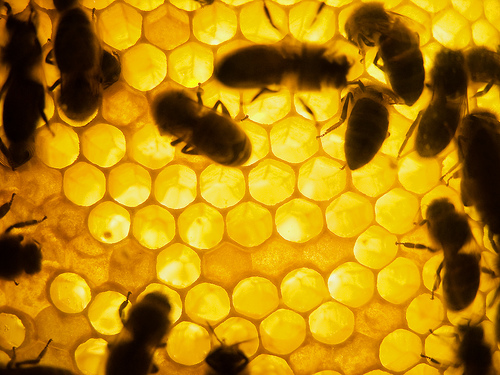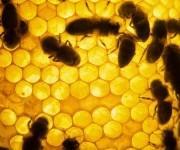 Bees hang in the balance in the fight against invasive stink bugs.Photo: david.nikonvscanonFor many Americans, the brown marmorated stink bug is a well-known household pest — but it’s also a serious agricultural threat. This invasive species arrived in Pennsylvania from China back in the mid-90s and has since spread to 33 states. Their spread may be exacerbated by climate change, as stink bugs seems to thrive in warmer weather (although the link is at best unclear).
Bees hang in the balance in the fight against invasive stink bugs.Photo: david.nikonvscanonFor many Americans, the brown marmorated stink bug is a well-known household pest — but it’s also a serious agricultural threat. This invasive species arrived in Pennsylvania from China back in the mid-90s and has since spread to 33 states. Their spread may be exacerbated by climate change, as stink bugs seems to thrive in warmer weather (although the link is at best unclear).
The stink bug is a nuisance in homes, where it can infest nooks and crannies and prove difficult to dislodge. But for farmers, it’s a disaster: Stink bugs destroy crops by boring into a wide range of fruits and vegetables which, while still edible, are effectively unsaleable. And while native U.S. stink bugs are kept in control by predators, those predators won’t attack Asian stink bugs. They now threaten crops on a large-scale.
The threat is so serious that the EPA is taking the unusual step of allowing farmers to attempt to control the bug by using an “unregistered” pesticide, i.e. a chemical that hasn’t gone through the EPA safety analysis and approval process. The chemical in question, dinotefuran, is used to control the stink bugs in China, but its status as a neonicotinoid pesticide means even USDA scientists have implicated it as a leading suspect in Colony Collapse Disorder, currently plaguing bee populations nationwide.
There is some hope that we may soon see a natural solution to the stink bug problem, whether it’s importing the stink bugs’ Asian predator (which could cause its own problems) or finding a less toxic repellent (although the USDA is only spending a meager $800,000 to study the issue). But for now, we’re faced with the unpleasant choice of mid-Atlantic farmers losing huge percentages of their crops to this pest, or putting pressure on our already stressed bees. It’s a lose-lose proposition either way, but the bees have lost this round.



